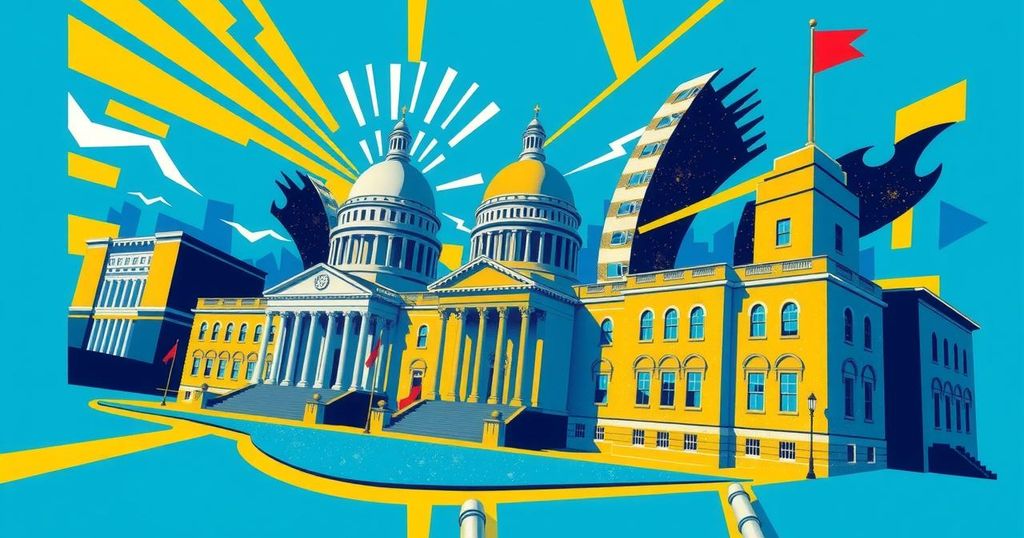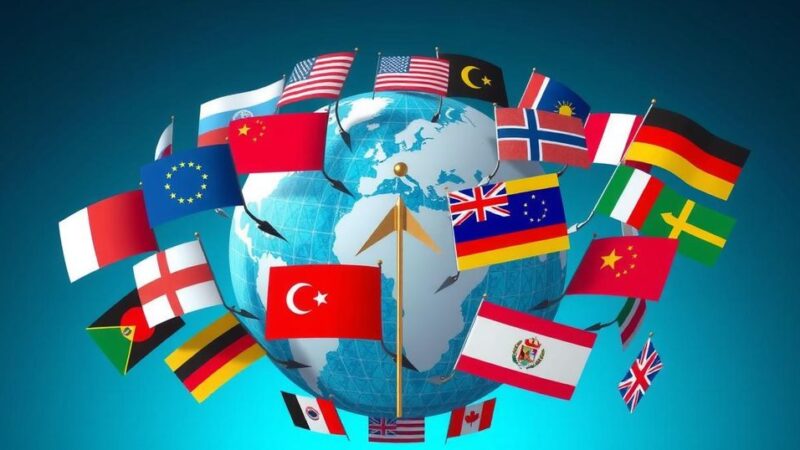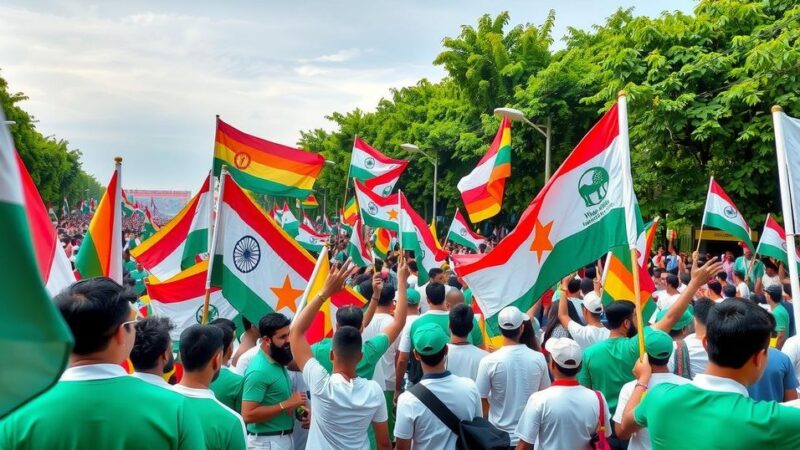Portugal is facing potential third general elections in three years due to a confidence vote against Prime Minister Luis Montenegro’s minority government. Amid criticism regarding his family’s law firm and opposition support for removal, the political uncertainty poses risks to economic management of EU funds. President Marcelo Rebelo de Sousa may call for elections by mid-May if the government resigns, while voter fatigue regarding frequent elections looms large.
Portugal may face its third general election within three years following a confidence vote initiated by the minority government. The center-right coalition, led by Prime Minister Luis Montenegro, has been facing mounting pressure regarding his family law firm’s business connections. A significant number of opposition lawmakers are poised to vote for the government’s removal in the upcoming parliamentary session.
This minority government, comprising the Social Democratic Party and its smaller ally, the Popular Party, holds only 80 seats in a 230-seat legislature and has been in power for less than a year. The confidence motion was requested by the government to alleviate concerns about its ability to implement policies successfully. However, with the opposition parties controlling 128 seats combined, a vote against the government appears likely.
The political turmoil presents potential ramifications, impacting not only Portugal’s political stability but also the distribution of over 22 billion euros ($24 billion) in EU development funds for Portuguese projects. Questions surrounding possible conflicts of interest related to Prime Minister Montenegro’s family’s law firm have exacerbated these tensions.
Despite denying any wrongdoing, Montenegro has come under criticism as opposition calls for more transparency regarding his family’s firm intensify. Recently reported payments from a company that holds a significant gambling concession raise further questions.
If the confidence vote results in the government’s resignation, President Marcelo Rebelo de Sousa has indicated that elections would ideally take place around mid-May. As the head of state, he holds the power to dissolve parliament and call new elections.
Notably, Portugal’s political landscape is experiencing a shift, with the radical-right party Chega gaining traction and placing third in the most recent election. Voter fatigue regarding frequent elections could influence future outcomes. The Social Democratic Party is relying on positive economic indicators—like a growth rate of 1.9% last year—to encourage voter support against their traditional rival, the center-left Socialist Party, which holds the second largest number of seats in parliament.
In summary, Portugal is on the brink of a political crisis that may lead to its third election in three years, predominantly due to a confidence vote that challenges the minority government’s legitimacy. The implications of this vote extend beyond political stability to economic management, particularly regarding the allocation of EU development funds. As issues around potential conflicts of interest surface, the country’s political landscape faces significant shifts and evolving voter sentiments.
Original Source: apnews.com






